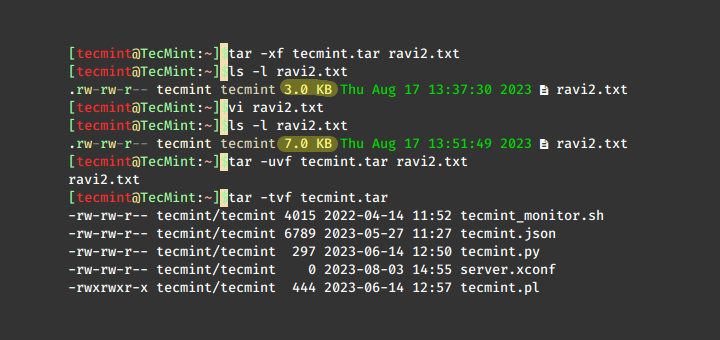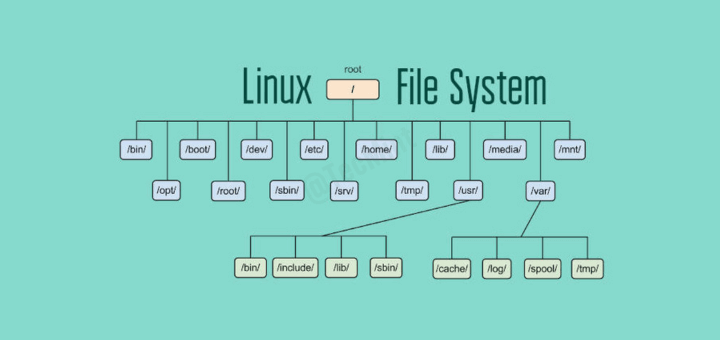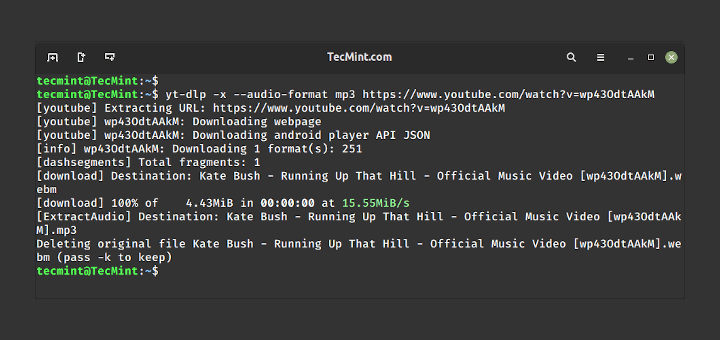In this article, we will explain how to find out who is using a particular file in Linux. This will help you know the system user or process that is using an open file.
We can use the lsof command to know if someone is using a file, and if they are, who. It reads kernel memory in its search for open files and helps you list all open files. In this case, an open file may be a regular file, a directory, a block special file, a character special file, a stream, a network file and many others – because in Linux everything is a file.
Lsof is used on a file system to identify who is using any files on that file system. You can run lsof command on Linux filesystem and the output identifies the owner and process information for processes using the file as shown in the following output.
$ lsof /dev/null
COMMAND PID USER FD TYPE DEVICE SIZE/OFF NODE NAME systemd 1480 tecmint 0r CHR 1,3 0t0 6 /dev/null sh 1501 tecmint 0r CHR 1,3 0t0 6 /dev/null sh 1501 tecmint 1w CHR 1,3 0t0 6 /dev/null dbus-daem 1530 tecmint 0u CHR 1,3 0t0 6 /dev/null xfce4-ses 1603 tecmint 0r CHR 1,3 0t0 6 /dev/null xfce4-ses 1603 tecmint 1w CHR 1,3 0t0 6 /dev/null at-spi-bu 1604 tecmint 0r CHR 1,3 0t0 6 /dev/null dbus-daem 1609 tecmint 0u CHR 1,3 0t0 6 /dev/null at-spi2-r 1611 tecmint 0u CHR 1,3 0t0 6 /dev/null xfconfd 1615 tecmint 0u CHR 1,3 0t0 6 /dev/null xfwm4 1624 tecmint 0r CHR 1,3 0t0 6 /dev/null xfwm4 1624 tecmint 1w CHR 1,3 0t0 6 /dev/null xfce4-pan 1628 tecmint 0r CHR 1,3 0t0 6 /dev/null xfce4-pan 1628 tecmint 1w CHR 1,3 0t0 6 /dev/null Thunar 1630 tecmint 0r CHR 1,3 0t0 6 /dev/null Thunar 1630 tecmint 1w CHR 1,3 0t0 6 /dev/null xfdesktop 1632 tecmint 0r CHR 1,3 0t0 6 /dev/null xfdesktop 1632 tecmint 1w CHR 1,3 0t0 6 /dev/null ....
To list user specific opened files, run the following command replace tecmint with the actual user name.
$ lsof -u tecmint
COMMAND PID USER FD TYPE DEVICE SIZE/OFF NODE NAME systemd 1480 tecmint cwd DIR 8,3 4096 2 / systemd 1480 tecmint rtd DIR 8,3 4096 2 / systemd 1480 tecmint txt REG 8,3 1595792 3147496 /lib/systemd/systemd systemd 1480 tecmint mem REG 8,3 1700792 3150525 /lib/x86_64-linux-gnu/libm-2.27.so systemd 1480 tecmint mem REG 8,3 121016 3146329 /lib/x86_64-linux-gnu/libudev.so.1.6.9 systemd 1480 tecmint mem REG 8,3 84032 3150503 /lib/x86_64-linux-gnu/libgpg-error.so.0.22.0 systemd 1480 tecmint mem REG 8,3 43304 3150514 /lib/x86_64-linux-gnu/libjson-c.so.3.0.1 systemd 1480 tecmint mem REG 8,3 34872 2497970 /usr/lib/x86_64-linux-gnu/libargon2.so.0 systemd 1480 tecmint mem REG 8,3 432640 3150484 /lib/x86_64-linux-gnu/libdevmapper.so.1.02.1 systemd 1480 tecmint mem REG 8,3 18680 3150450 /lib/x86_64-linux-gnu/libattr.so.1.1.0 systemd 1480 tecmint mem REG 8,3 18712 3150465 /lib/x86_64-linux-gnu/libcap-ng.so.0.0.0 systemd 1480 tecmint mem REG 8,3 27112 3150489 /lib/x86_64-linux-gnu/libuuid.so.1.3.0 systemd 1480 tecmint mem REG 8,3 14560 3150485 /lib/x86_64-linux-gnu/libdl-2.27.so ...
Another important use of lsof is to find out the process listening on a specific port. For example identify the process listening on port 80 using the following command.
$ sudo lsof -i TCP:80
COMMAND PID USER FD TYPE DEVICE SIZE/OFF NODE NAME httpd 903 root 4u IPv6 20222 0t0 TCP *:http (LISTEN) httpd 1320 apache 4u IPv6 20222 0t0 TCP *:http (LISTEN) httpd 1481 apache 4u IPv6 20222 0t0 TCP *:http (LISTEN) httpd 1482 apache 4u IPv6 20222 0t0 TCP *:http (LISTEN) httpd 1493 apache 4u IPv6 20222 0t0 TCP *:http (LISTEN) httpd 1763 apache 4u IPv6 20222 0t0 TCP *:http (LISTEN) httpd 2027 apache 4u IPv6 20222 0t0 TCP *:http (LISTEN) httpd 2029 apache 4u IPv6 20222 0t0 TCP *:http (LISTEN) httpd 2044 apache 4u IPv6 20222 0t0 TCP *:http (LISTEN) httpd 3199 apache 4u IPv6 20222 0t0 TCP *:http (LISTEN) httpd 3201 apache 4u IPv6 20222 0t0 TCP *:http (LISTEN)
Note: Since lsof reads kernel memory in its search for open files, rapid changes in kernel memory may result into unpredictable outputs. This is one of the major downsides of using lsof command.
For more information, look at the lsof man page:
$ man lsof
That’s all! In this article, we have explained how to know who is using a particular file in Linux. We have shown how to identify the owner and process information for processes using an open file. Use the feedback form below to reach us for any questions or comments.







I am trying to find out who is using my computer besides myself. I don’t understand the instructions. Can you help me find out who is getting access to my computer. I have authorized NO one to use this computer. Thank you
@Marilyn
You can use the w command:
$ wIt shows who is logged on and what they are doing.